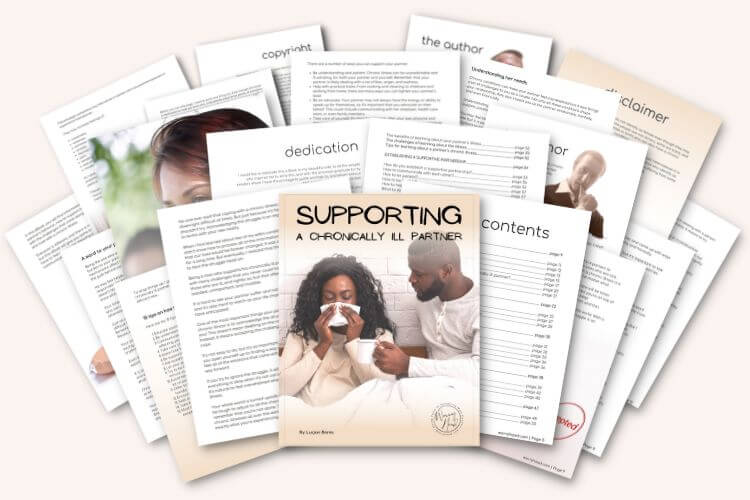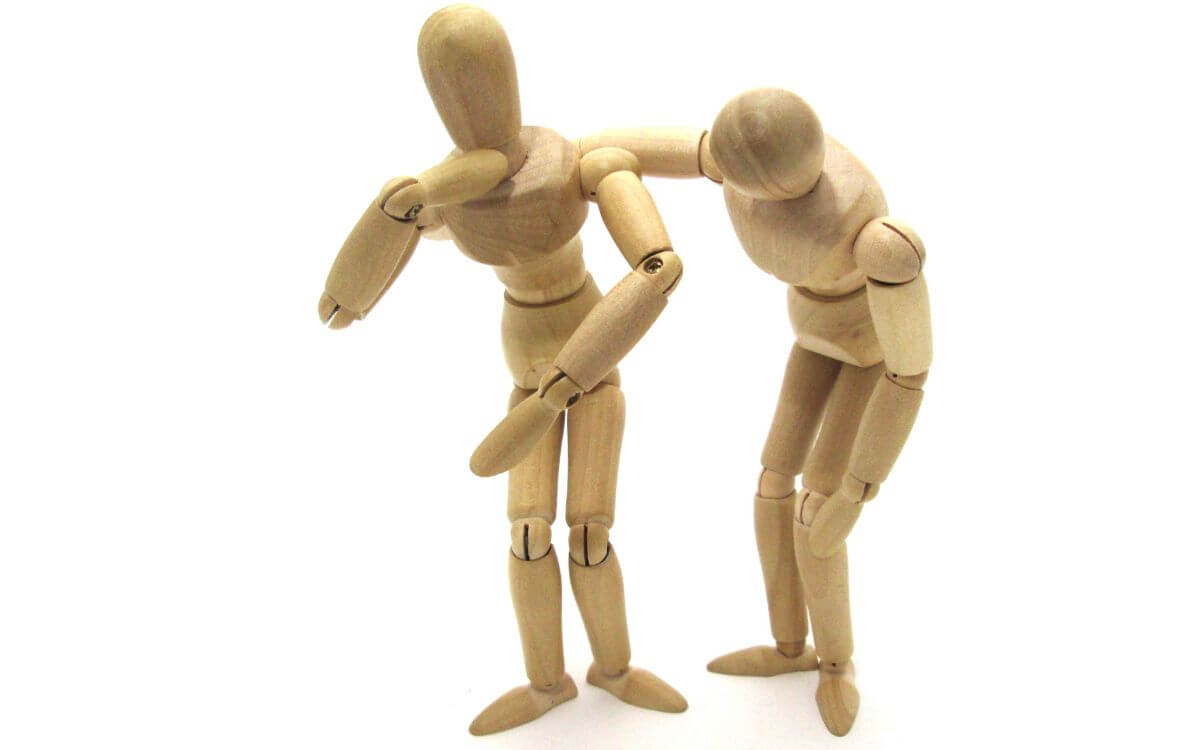Being a male caregiver: challenges and rewards.
Every time I think about being a caregiver and spouse, I struggle with this notion a little bit. The reason is, that I am a caregiver by profession – I care for kids with serious medical and complex needs. At home, however, I care for my chronically ill wife, but I care because of my love for her, not in a medical sense.
My wife suffers from multiple chronic conditions. Primarily, she was diagnosed with a chronic disease – stage 4 endometriosis (deep infiltrating endometriosis, to be exact), her second chronic condition is fibromyalgia disorder. To top it up, she suffers from chronic fatigue syndrome (CFS).
All three impacted her on many levels, she suffers from chronic anxiety, panic disorder, depression, and obsessive-compulsive disorder (OCD), oftentimes causing negative and suicidal thoughts.
I have to cope with her situation whilst controlling my own emotions. Sometimes, I find it hard…
- Being a male caregiver isn't easy.
- My personal experience as a male caregiver.
- Challenges of being a male caregiver.
- Rewards for being a male caregiver.
- Strengthening relationships and building deeper connections with your loved one.
- Finding meaning and purpose in your caregiving role.
- Developing new skills and knowledge related to healthcare and caregiving.
- Building resilience and personal growth through challenging experiences.
- Contributing to the well-being and quality of life of your loved one.
- 15 strategies for you to cope and thrive as a male caregiver.
- Conclusion on being a male caregiver.
Being a male caregiver isn’t easy.
Being a caregiver is a demanding role that requires compassion, patience, and resilience. While it is traditionally seen as a role reserved for women, caregiving is becoming increasingly gender-neutral, with more and more men stepping up to provide care for their loved ones.
In this blog post, I explore some of the challenges and rewards of being a male caregiver for someone who suffers from two chronic conditions.
My personal experience as a male caregiver.
When my wife was diagnosed with endometriosis and fibromyalgia, her life changed completely.
Over a decade, she learned how to cope with her chronic pain, but when it came to chronic fatigue and the impact of both chronic conditions on her mental health, I began to worry.
My wife became suicidal, she also asked me to file for divorce seeing me in distress. But I stood by her, I refused to break my vow!
I had to do something. I had to find a way in the new normal that her chronic conditions brought to our marriage, but it wasn’t going to be easy, as there were challenges and obstacles I had to overcome in order to better cope by myself, and to better support my poor wife.
If you want more in-depth information about how to support your partner with her chronic conditions and how to cope with the new normal in your relationship, I wrote a “Supporting a Chronically Ill Partner” e-Book.
You can get the 1st Chapter of the e-Book for FREE, and if you like it, you’ll get a Whopping 33% Discount on the Whole Book, plus discounts on other helpful tools. You have nothing to lose but a lot to gain!
The first chapter alone contains a lot of information for both of you about acknowledging the struggles, including:
- A word to your partner.
- A word to you.
- Stepping on eggshells.
- Understanding her needs.
- How to acknowledge having a chronically ill partner?
- Acknowledging can be hard.
- 15 tips on how to do it!
Get the 1st Chapter FREE!
Chronic Illness for Partners

Challenges of being a male caregiver.
There are many challenges of being a male caregiver. I am going to discuss just a handful, including:
- Breaking down gender stereotypes and social expectations
- Coping with emotional and mental strain
- Managing physical demands and personal responsibilities
- Navigating healthcare systems and advocating for your loved one
- Balancing the needs of your loved one with your own needs and priorities
Breaking down gender stereotypes and social expectations.
As a male caregiver, I faced big societal pressure to fulfill traditional gender roles that may not align with my caregiving responsibilities. This made me feel guilt and confusion, sometimes even resentment, as I struggled to balance societal expectations with my caregiving duties.
It’s important to challenge these gender stereotypes and recognize that caregiving is a responsibility that can be fulfilled by anyone, regardless of gender.
Coping with emotional and mental strain.
Being a caregiver can be emotionally and mentally challenging, and it can take a toll on my well-being. I experienced feelings of stress and worry. Many men may develop anxiety and depression navigating the demands of caregiving. It’s important to prioritize self-care and seek support from others, such as friends, family, or professional counseling services.
Managing physical demands and personal responsibilities.
As a caregiver, I had to balance the physical demands of caring for my wife with my own personal responsibilities, such as work and other obligations. I gave up the gym and dance that I loved so much. This can be a juggling act, as you try to ensure that your loved one is receiving the care they need while also fulfilling your own responsibilities.
Navigating healthcare systems and advocating for your loved one.
The healthcare system can be complex and overwhelming, especially for those who are new to caregiving. As a male caregiver, I felt a sense of responsibility to navigate these systems and advocate for my wife, which was challenging and time-consuming. It’s important for you to educate yourself on healthcare systems and resources, and to ask for help and support when you really need it.
Balancing the needs of your loved one with your own needs and priorities.
As a caregiver, I felt torn between meeting the needs of my wife and fulfilling my own personal needs, hobbies, and priorities. This can be a difficult balancing act, as I try to prioritize both. It’s important to communicate openly with your loved one and others involved in her care but also to make time for self-care and personal interests.

Rewards for being a male caregiver.
In contrast to the challenges, there are also rewards for being a male caregiver. Again, here’s a handful I provide:
- Strengthening relationships and building deeper connections with your loved one
- Finding meaning and purpose in your caregiving role
- Developing new skills and knowledge related to healthcare and caregiving
- Building resilience and personal growth through challenging experiences
- Contributing to the well-being and quality of life of your loved one
Strengthening relationships and building deeper connections with your loved one.
As a male caregiver who takes care of his loved one, you have the opportunity to create a stronger bond with them. This bond can grow deeper as you provide support and care to your partner. As a result, you can develop a deeper appreciation for her and the time you spend together.
Finding meaning and purpose in your caregiving role.
Providing care to her can be a rewarding experience. It can bring meaning and purpose to you as a caregiver, as you see the positive impact your support has on your partner. You feel a great sense of accomplishment and pride in being able to provide the necessary care for her.
Developing new skills and knowledge related to healthcare and caregiving.
Being a caregiver can provide opportunities for you to learn new skills and acquire knowledge related to healthcare and caregiving. This can be a great way for you to expand your level of knowledge and understanding of your loved one’s condition and how to provide better care.
Building resilience and personal growth through challenging experiences.
Caring for your partner can be challenging and stressful, but it can also provide an opportunity for personal growth and resilience. Male caregivers learn to manage stress, but also develop patience and compassion. They build resilience through the challenges they face in their caregiving role.
Contributing to the well-being and quality of life of your loved one.
As a male caregiver, you have an opportunity to contribute to the well-being and quality of life of your loved one by providing emotional and physical support. This can lead to improved health outcomes and a better quality of life for your partner. As a result, you feel a sense of satisfaction and fulfillment in knowing that you make a positive impact on her life.

15 strategies for you to cope and thrive as a male caregiver.
I’ll keep it straight to the point, as these are self-explanatory. Here are my own 15 strategies I share with you to cope and thrive as a male caregiver:
- Seek support from your family, friends, and community resources.
- Practice self-care through activities such as exercise, hobbies, and relaxation techniques.
- Build a network of healthcare professionals and advocates to support you and your loved one.
- Communicate openly and honestly with your partner about her needs and your own needs and limitations.
- Maintain a sense of humor and find joy in small moments (gratitude).
- Set boundaries and prioritize your own time effectively to avoid caregiver burnout and compassion fatigue.
- Attend support groups specifically for caregivers to share experiences and receive emotional support.
- Learn as much as you can about her condition to feel more in control and informed.
- Break down your caregiving tasks into manageable steps to avoid feeling overwhelmed.
- Utilize technology to help manage care tasks such as medication reminders or online appointment scheduling.
- Practice mindfulness and meditation to manage stress and stay present at the moment.
- Take time to engage in activities that bring you joy and fulfillment outside of caregiving.
- Be kind to yourself and recognize that caregiving can be a very difficult and challenging role.
- Accept help from others when it is offered, even if it is difficult to do so.
- Advocate for yourself and your loved one in healthcare settings to ensure that your voices are heard and your needs are met.
Conclusion on being a male caregiver.
Being a male caregiver can be a challenging and rewarding experience. To summarise this in short, here are 5 examples of each…
Challenges of being a male caregiver:
- Breaking down gender stereotypes and social expectations
- Coping with emotional and mental strain
- Managing physical demands and personal responsibilities
- Navigating healthcare systems and advocating for your loved one
- Balancing the needs of your loved one with your own needs and priorities
Rewards for being a male caregiver:
- Strengthening relationships and building deeper connections with your loved one
- Finding meaning and purpose in your caregiving role
- Developing new skills and knowledge related to healthcare and caregiving
- Building resilience and personal growth through challenging experiences
- Contributing to the well-being and quality of life of your loved one
By acknowledging the challenges, embracing the rewards, and implementing strategies for coping and thriving, you can provide exceptional care for your loved one while also taking care of your own well-being.
If you are a male caregiver, know that you are not alone and that your role is valuable and appreciated.
Warmly,


About Me
Hi, I’m Lucjan! The reason why I decided to create this blog was my beautiful wife, who experienced a lot of pain in life, but also the lack of information about endometriosis and fibromyalgia for men…
